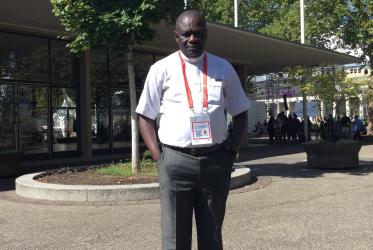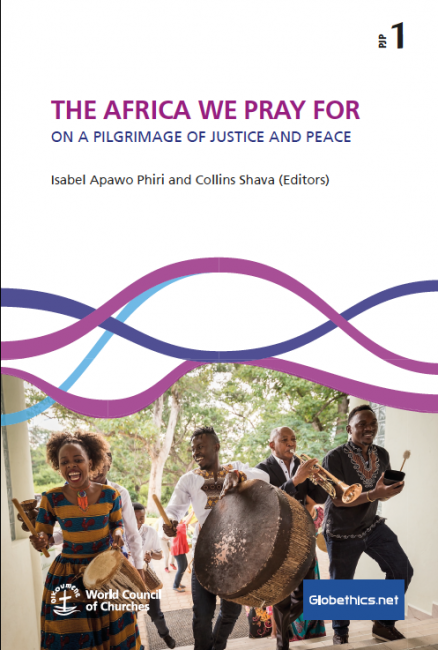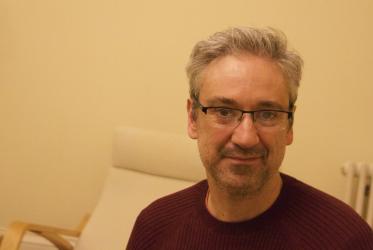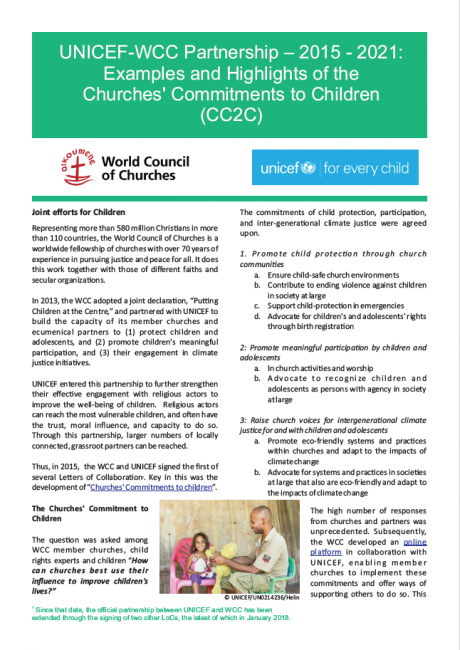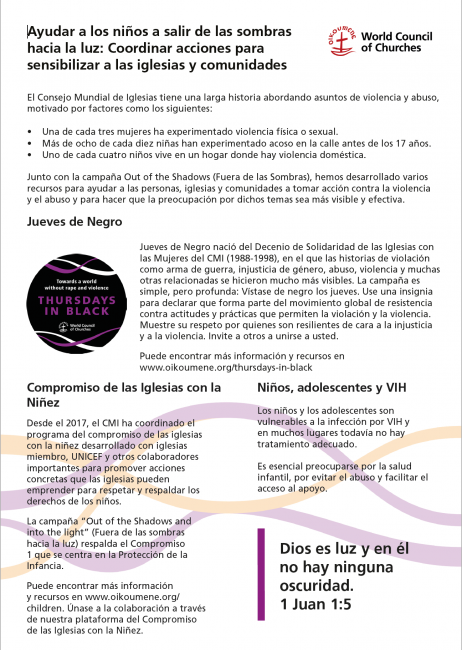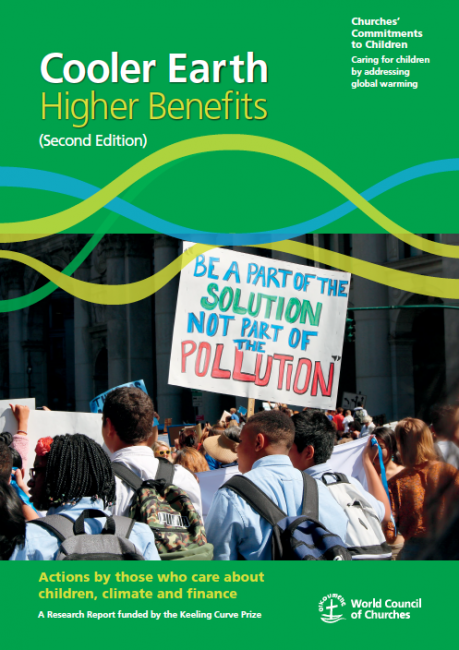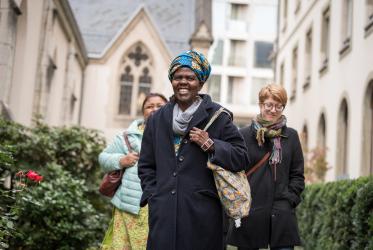Displaying 1 - 20 of 26
22 February 2024
ACT Alliance general secretary: “equity is not negotiable”
26 September 2023
Cooler Earth - Higher Benefits (Third Edition)
Actions by those who care about children, climate, and finance
16 August 2022
Ecumenical International Youth Day 2021 Event Toolkit
Young People and Climate Justice
06 August 2021
Helping Children Out of the Shadows and Into the Light: Poster
Church Resources For Ending Sexual Violence Against Children
15 July 2021
Thursdays in Black sheet: Helping Children Out of the Shadows and into the Light
Linking actions to raise awareness in churches and communities
15 July 2021
Cooler Earth – Higher Benefits Second Edition
Actions by those who care about children, climate and finance
02 July 2021
Cooler Earth - Higher Benefits
Actions by those who care about children, climate and finance.
20 November 2020
Helping Children Out of the Shadows and Into the Light: Brochure
Church Resources For Ending Sexual Violence Against Children
04 November 2020





